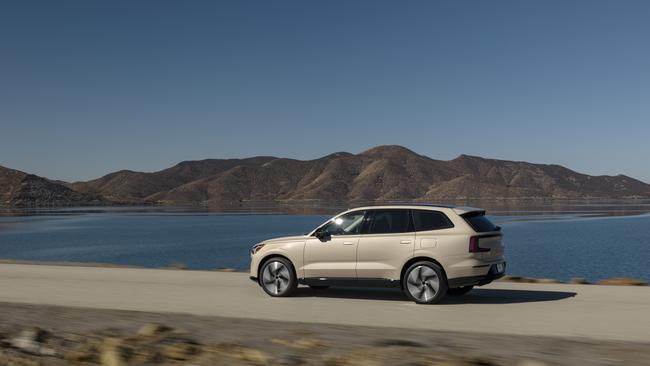Automakers scale back EV targets as demand slows
Several automakers have announced shock changes to their markets after a number of setbacks.
Technology
Don't miss out on the headlines from Technology. Followed categories will be added to My News.
Toyota looks set to scale back EV production next year.
The Japanese giant initially aimed to produce 1.5 million EVs by 2026 but has now scaled back its goal to 1 million, according to the Asia Nikkei news service.
A Toyota spokesman said “The number of vehicles we have indicated is not a target but a standard for our stakeholders and is positioned as a guideline for building a better system to meet future demand for BEVs”.
“We will continue to expand our supply chain, including batteries, establish a sales structure, improve infrastructure such as recharging facilities, and promote software development to be ready to produce and sell electrically powered vehicles,” he said.
Toyota is far from alone in pulling back, with other major automakers such as Volvo, Porsche, Mercedes Benz, General Motors and Ford adjusting their expectations.

Just recently, Volvo also amended its EV ambitions.
The Swedish automaker revealed that it would no longer aim to be fully electric by 2030.
Instead, Volvo now plans to keep some hybrid models in its line-up, with a new target of having 90-100 per cent of its sales from fully electric or plug-in hybrid models by 2030.
Luxury automaker Porsche followed a similar path, announcing in July that they would be dialling back its target for electric vehicle sales.
Porsche acknowledged that its goal of 80 per cent EV sales by 2030 would only be achievable if demand and technological developments supported it.
Mercedes Benz earlier this year adjusted its EV sales targets.
The German automaker now expects EVs and hybrids to make up 50 per cent of its sales by 2030, five years later than projected.
In June, General Motors cut its EV production forecast and shortly after Ford scrapped its plans for a large three-row all electric SUV.

The shifts in EV production by several major automakers highlight a broader problem across the auto industry.
Markets around the globe are moving at different EV adoption rates.
The global supply chain is still recovering from the pandemic and is struggling to meet the demand for critical EV components like lithium and cobalt.
Government subsidies for EVs, an incentive to buy an EV, are unwinding in key markets but in an uncertain economic climate.
Consumers, in regions where EV charging infrastructure is still lacking, remain hesitant about embracing EVs.




